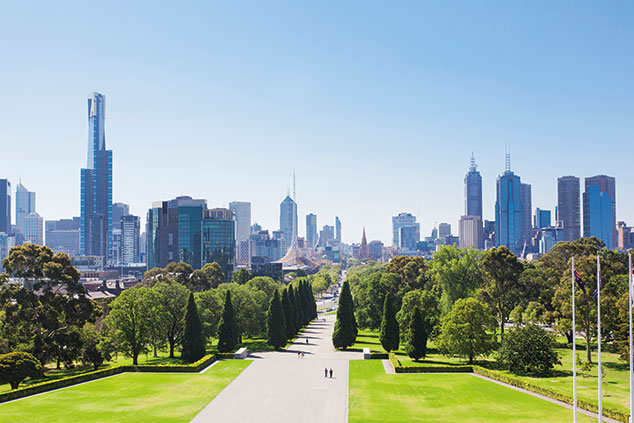
Then the US slipped into recession, while Australia sharply cut interest rates, thereby firing up its housing market. Meanwhile, a lending spree in China led to a mining boom in resource-rich Australia; in conjunction with a well-timed fiscal stimulus, this helped Australia sail through the global financial crisis of 2008-2009 largely unscathed. As a result, the economy now seems “overdue a fall”.
The housing bubble now appears to be bursting. Prices in Sydney and Melbourne, the two most overvalued property markets, have now dropped 11.1% and 7.2% respectively compared with the 2017 peak. Meanwhile, the boom in mortgage lending, and general exuberance, has seen Australia’s household debt increase from 45% of GDP in 1996 to an eye-watering 121% at the end of 2018. (In the UK, the figure is 87%). Consumers owe 200% of their disposable income.
As Bloomberg points out, the Bank for International Settlements has calculated that household debt starts to drag on growth once it reaches 80% of GDP. No wonder, then, that the expansion is beginning to slow. In 2018, weak consumer spending was the “chief culprit” that dragged annual growth down from 3.4% to 2.8% in the third quarter, notes Emma Dunkley in the Financial Times.
Income growth has slowed, which, along with the debt pile, is making consumers more cautious. Consumption accounts for more than half of GDP. The Australian dollar has weakened to its lowest level in a decade against its US counterpart, which bodes well for tourism. But this is set to be overshadowed by the fact that the economy remains at the mercy of the cycle in China. Australia is the most China-dependent developed economy, says Bloomberg. The Middle Kingdom buys 35% of Australia’s exports, accounting for 8% of GDP.
China won’t help this time
So it bodes ill that a“sharper-than-expected slowdown” appears to be gathering pace there, says Dunkley. China’s appetite for Australian metals is fading: its iron-ore imports slipped by 1% in 2018, the first annual decline in eight years. Australia would benefit if China can weather the trade war with the US, while it will be keeping a close eye on stimulus measures from the Chinese government. But government action there is constrained by the debt bubble, so a big boost seems unlikely. The Aussie dollar may have further to fall.